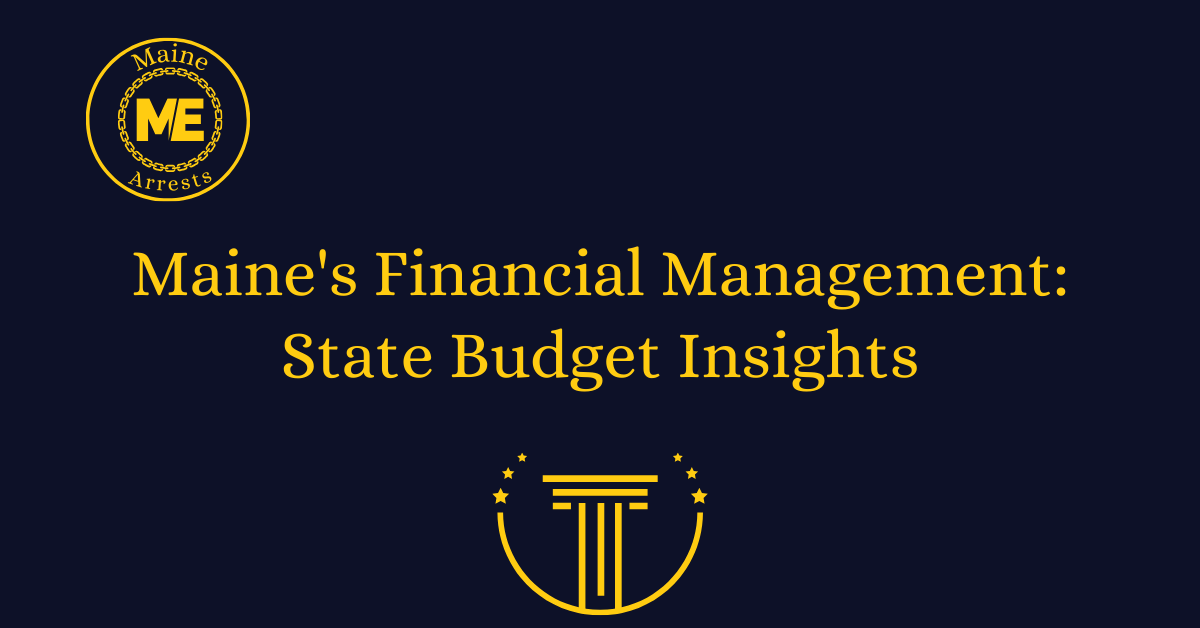Maine’s Financial Management: State Budget Insights
Welcome to Maine’s Financial Management, where we delve into the intricacies of the state’s budget and provide valuable insights into its management and allocation. In this comprehensive guide, we will explore the various facets of Maine’s financial landscape, including revenue sources, expenditure priorities, and the impact of budget decisions on the state’s economy and its residents. Whether you are a seasoned economist, a concerned citizen, or simply curious about the financial workings of the Pine Tree State, this resource aims to provide you with a clear understanding of Maine’s budgetary process and its implications for the overall financial health of the state.
The Importance of Revenue Sources
One of the key factors in managing Maine’s budget effectively is understanding the various revenue sources that contribute to the state’s financial health. These sources include taxes, fees, federal grants, and other forms of income. By analyzing and monitoring these revenue streams, policymakers can make informed decisions about budget allocations and prioritize spending in areas that will have the greatest impact on the state’s economy and its residents.
Expenditure Priorities: Investing in Maine’s Future
Another crucial aspect of Maine’s budget management is determining expenditure priorities. The state must carefully allocate funds to meet critical needs such as education, healthcare, infrastructure development, and public safety. By identifying these priorities, policymakers can ensure that taxpayer dollars are spent wisely and effectively, creating a strong foundation for the future growth and prosperity of the state.
The Economic Impact of Budget Decisions
Every budget decision has a ripple effect on Maine’s economy and its residents. By examining the potential economic impact of each choice, policymakers can make informed decisions that promote growth, job creation, and overall prosperity. This analysis involves considering factors such as job growth potential, economic multiplier effects, and the potential for attracting businesses and investment to the state.
Ensuring Transparency and Accountability
Transparency and accountability are essential principles in Maine’s budget management. By providing clear and accessible information about budget decisions, policymakers can foster trust and ensure that taxpayers understand how their money is being spent. Additionally, regular audits and evaluations help identify areas for improvement and ensure that funds are being used efficiently and effectively.
Budgeting for Resilience and Contingencies
Maine’s budget management also involves planning for unforeseen events and contingencies. By setting aside funds for emergencies and unexpected expenses, the state can better weather economic downturns, natural disasters, and other challenges. This proactive approach to budgeting ensures that Maine remains resilient and can quickly respond to crisis situations.
Collaboration and Stakeholder Engagement
Effective budget management in Maine relies on collaboration and engagement with stakeholders. This includes working closely with various government agencies, community organizations, businesses, and residents to gather input, solicit feedback, and ensure that budget decisions reflect the needs and priorities of the people. By fostering a sense of ownership and inclusivity, Maine’s budget management can become a collective effort that benefits all.
FAQs
What is Maine’s Financial Management?
Maine’s Financial Management refers to the processes and strategies implemented by the state government to effectively manage its finances, including the state budget.
How is the State Budget created in Maine?
The State Budget in Maine is created through a collaborative process involving the Governor’s Office of Policy and Management, various state agencies, and the Legislature. It starts with the development of a budget proposal by the Governor, which is then reviewed and modified by legislative committees before being approved.
What are the key components of Maine’s State Budget?
Maine’s State Budget consists of various components, including revenue estimates, expenditure allocations, debt service obligations, and contingency funds. It also includes specific provisions for education funding, healthcare services, infrastructure development, and other key areas.
How is the State Budget in Maine funded?
Maine’s State Budget is funded through a combination of revenue sources, including taxes (such as income tax, sales tax, and property tax), federal grants, fees, and other miscellaneous sources. The budget also takes into account economic forecasts and projections to ensure sufficient funding for state programs and services.
How does Maine’s Financial Management ensure transparency and accountability?
Maine’s Financial Management follows a transparent approach by providing detailed financial reports, budget documents, and performance metrics to the public. The state government also undergoes regular audits and reviews to ensure accountability and compliance with financial regulations.
How can citizens participate in Maine’s Financial Management process?
Citizens can participate in Maine’s Financial Management process by staying informed about the state budget, attending public hearings and meetings, providing feedback to their elected representatives, and engaging in advocacy efforts. They can also access online resources and tools provided by the state government to understand the financial management process better.







